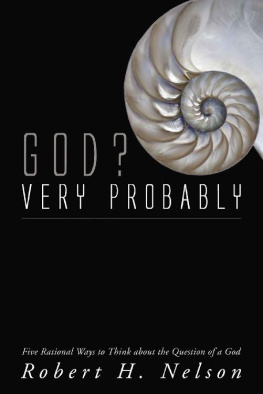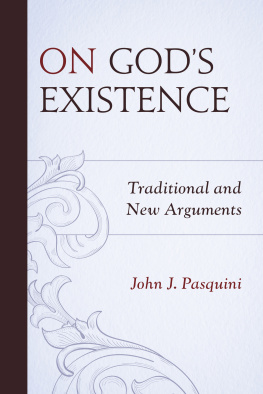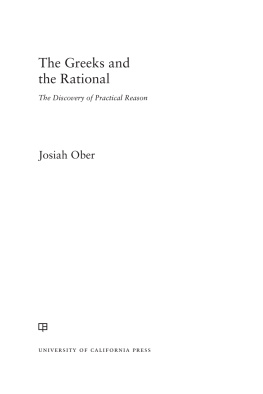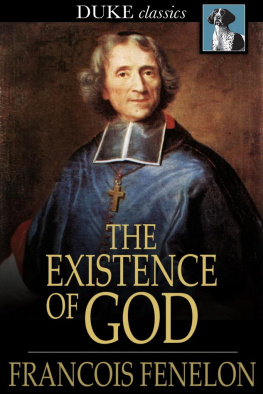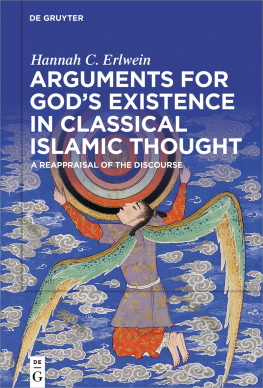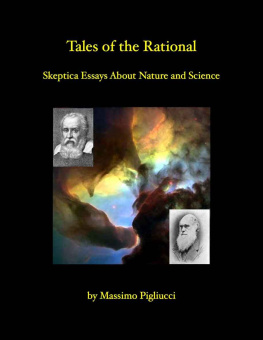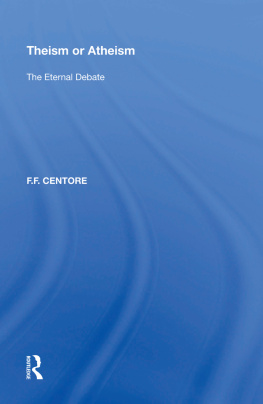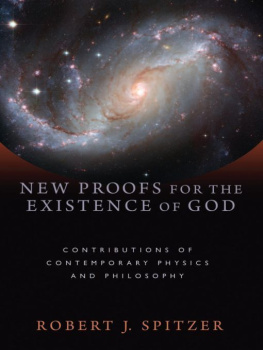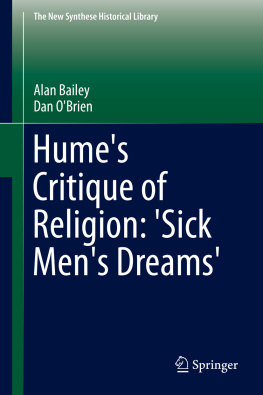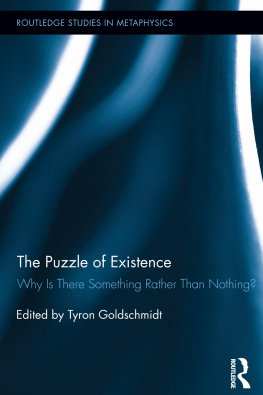Copyright 2015 Robert H. Nelson. All rights reserved. Except for brief quotations in critical publications or reviews, no part of this book may be reproduced in any manner without prior written permission from the publisher. Write: Permissions. Wipf and Stock Publishers, W. th Ave., Suite , Eugene, OR 97401 .
W. th Ave., Suite
Nelson, Robert H.
God? very probably: five rational ways to think about the question of a God / Robert H. Nelson ; foreword by Herman Daly.
xvi + p. ; cm. Includes bibliographical references and index.
Gods existence. Theism. Consciousness. I. Title.
Foreword
B ob Nelson and I occupied adjacent offices at the University of Maryland School of Public Policy for about fifteen years. This led to many conversations that were pleasant and fruitful because we shared interests in both economics and environmental studies. Also, we agreed in our basic world views enough to make good conversation possible, yet differed enough to make it interesting. So when Bob asked me to read and comment on an earlier draft of this book, I accepted.
To be painfully honest, however, I thought at the time that I knew a bit more about theology and religion than Bob did, and that while I might be useful to him, I doubted that I would learn much from the collegial duty of reading the draft. It quickly became apparent that I was totally mistaken about thatBob was the teacher and I was his student. How could I have been so wrong? Had Bob been reticent about his knowledge and wide reading in theology? Had I been unperceptive? Had he learned so much in such a short time? Suffice it to say that I came away from reading the draft with a long list of referenced scholars to read, and with many new insights.
The ability to read and absorb vast amounts of material is a capacity that Bob is blessed with. His mind is like a huge sponge that absorbs everything, but what he wrings out of it on to the pages of his own writing is not simply what he absorbed, but rather a high-proof distillation that stimulates further thought and insight.
Bobs approach to religion in his important past scholarly work on Economics as Religion had been that of the objective external observer. This book takes the internal approach of a serious prospective believer, weighing the arguments for the existence of God (a generic monotheistic God). His reasoned conclusion is that very probably God exists. He hints that his next book may go further than this.
The world view of scientific materialism has become so dominant on university campuses that a sophomoric atheism, styled the new atheism, has become prevalent. It has been preached, aggressively and arrogantly, by Richard Dawkins, Daniel Dennett, Christopher Hitchens, and others. Many, whose study of religion ended with first-grade Sunday school, have uncritically accepted their message. As a Christian theist myself, I have had a hard time understanding how such a fundamentalist neo-Darwinist materialism could have, until recently, gotten a critical free pass from the intelligentsia. Nelson, as you will see, doesnt give free passes. Although the thrust of this book is not to debate these thinkers, the self-contradictions of their positions are frequently exposed as by-products of broader discussions, and Nelson helpfully makes the connections, much to my satisfaction.
I believe that other readers will enjoy and benefit from the clear, informed, and honest reasoning in this book as much as I did.
Herman Daly
Emeritus Professor
March , 2015
Preface
Religion in the academic environment I have worked in for more than twenty yearsat the School of Public Policy of the University of Marylandis an awkward subject. Unlike some other departments, it is not that my longtime colleagues are hostile to religion or do not acknowledge the potential practical benefits of religionmany of them would readily admit that religion, for whatever reason, often seems to make people more agreeable, more honest and trustworthy, good neighbors if you willor reliable business partners. But many of these same colleagues would say that religion has little to offer with respect to explaining the fundamental truths of the world. For that, they look to science, both in its physical science and social science versions. Religion for them is a kind of happy illusion, however great a role it has obviously played over the totality of human history, perhaps overall for the good but sometimes also with terribly destructive consequences.
As a professional economist by training and thus more broadly a social scientist, I fit well personally in many ways in this academic environment. My own professional history, however, shows some significant indications of heretical tendencies. After majoring in mathematics at Brandeis University, and then getting a PhD in economics at Princeton University in 1971 , I left the academic world in 1972 in part because I was uncomfortable with what I saw as a limited understanding of the realities of the human condition in my own field of economicsand that seemingly was also true of the other social sciences, although I was less familiar with them. I ended up working as an economist in the Office of Policy Analysis of the Office of the Secretary of the Interior in Washington, DC from 1975 to 1993 . I resolved by the mid- 1980 s to explore in my own writings the religious dimensions of public policy debate in the United States as necessary to achieving a fuller understanding of the American political and policy making worldsfocusing on my professional areas of special concern, natural resources and environmental policy. I did not realize it at the time, but this was taking me into the realm of theology.
Since 1990 , while also continuing to pursue actively more conventional public policy subjects, I have been spending a good part of my time thinking and writing about religion (including in this category belief systems such as economics and environmentalism), including three books and many scholarly (and also more popular) articles, an area of intellectual activity of mine that my School of Public Policy colleagues today often find meritorious (for one thing, I have had some success) and intellectually interesting but it clearly puts me well outside the social science and public policy mainstreams.
This book takes me even further afield. In it I explore the question of whether a god exists (throughout this book, I will write generically of a god assumed to be a monotheistic god, unless it is specifically the Christian God I am referring to, or is being discussed by others, and in such cases I will use God). While I have written a great deal over the past twenty-five years about matters relating to religion, and three of my books have been widely reviewed in religious magazines and theology journals (as well as in social science journals), I have not previously attempted a book as ambitious as this one. Like many people, however, I have often wondered over a lifetime whether a god exists. But I have never committed a sustained intellectual effort to answering this questionuntil now. I think by writing, so this book is in part the record of the recent progress of my thinking, taking me from a long-standing basic agnosticism as recently as about eight years ago to now believing that a god (very probably) exists. This god may well resemble but is not necessarily the precise divinity of Christianity or any other of the traditional major religions of Western or other world history.

